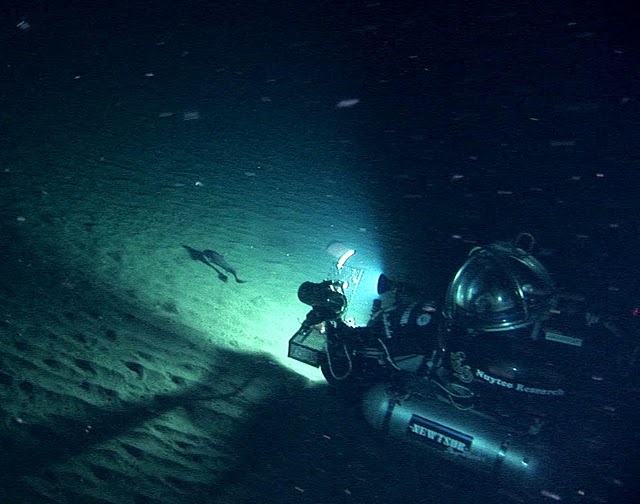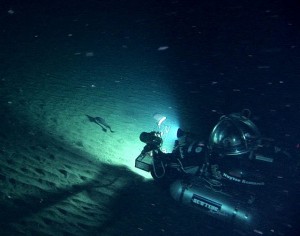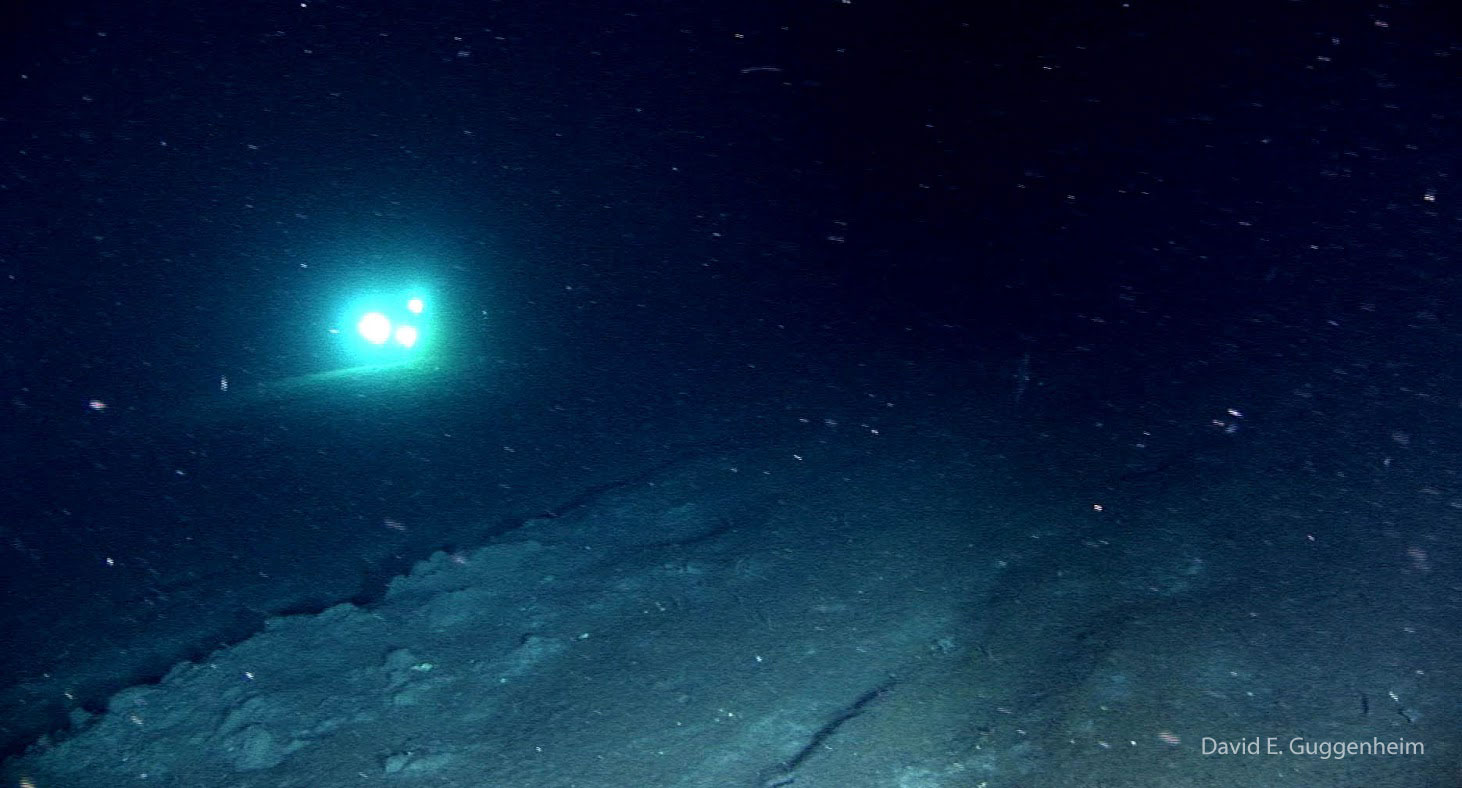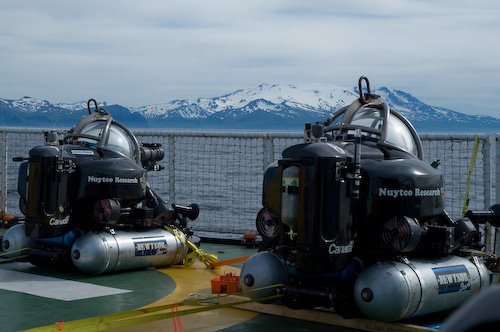Deep Reflection: Alone in the Dark at 1,300 Feet Below
I am inside a tiny, 1-person submarine beneath the Bering Sea, hundreds of miles offshore from the Alaskan coast. There are 1,300 feet of water between me and the surface. I’m here as part of a Greenpeace-led expedition to shed new light on the unexplored depths here.
It’s freezing cold, completely dark, and forbidding and it’s utterly beautiful.
- I’ve seen deep sea corals at nearly 2,000 feet, defiantly wearing their brilliant pink colors across a dark, brown and gray seascape; some of the corals here may be over 2,000 years old.
- I’ve seen prehistoric-looking fish patrolling the dark waters of these depths.
- I’ve seen hungry, voracious squid, rocketing toward my sub’s lights, probing my sub’s surface for something to swallow.
- I’ve seen the fine threads that hold an ecosystem together, like how tiny shrimp and other creatures, seeking sanctuary from the powerful undersea currents, eagerly gather in the depressions in the bottom left by flatfish like halibut and skates, each bearing a perfect outline of the fish that previously lay there.
- I’ve seen the current carrying countless tiny and microscopic plankton, and with my lights out, witnessed these creatures light up the darkness with hypnotic constellations yellow-green light.
- And I’ve seen the unmistakable mark of humanity’s hand, in the form of huge plowed swaths of bottom where little grows, the telltale scars of trawling for fish, here in the place where half of the U.S. fish catch comes from.
I believe there are important lessons for us down here. Lessons on how we live our lives high above and far away from this place. But they’re not just lessons about science. They’re lessons of our own humanity.
Here in this tiny sub, I’m trying to comprehend an enormous, complex tapestry in the darkness. And in the vastness, I feel small, awed by each sight around me, overwhelmed by how much we still don’t know. More than anything, I feel a strong sense of humility, my own self-importance paled against the grandeur of this place, our planet, and the knowledge to come in the centuries ahead.
Humility is perhaps one of the most important lessons from this place. It allows us to see beyond ourselves, to truly perceive the world around us with wonder. Yet it’s a quality strangely lacking from too many of our leaders today, whose arrogance short-circuits our human quest for truth, supplanting reason with rhetoric. True leadership demands the bravery to seek the truth, a curious mind to fashion a better way forward, and objectivity, to admit regrets.
I truly hope we can reawaken our unique and precious human qualities of wonder, curiosity and humility, helping our children spend less of their summers learning how to take a standardized test, and more learning how to explore the real world around them.
By the end of my dive a few hours from now, my tiny sub will have illuminated but a few new corners of this vast place. With each tantalizing glimpse come new insights and a little more of the story this ornate tapestry tells. I believe there are life lessons in countless corners of the world around us. We just need to do what humans do best: Look around and be curious.
I wrote most of this short essay while piloting the DeepWorker submersible below the Bering Sea in 2007. It was originally submitted for NPR’s “This I Believe” series and 3 years later, reprinted here.







Your work is very interesting. I couldn’t agree more with you, in this day and age we feel there is no frontier, but what young people like me don’t realize is about 95 percent of the ocean is unexplored. I researched, some more after reading your post and discovered it is projected, that over 750,000 species are undiscovered in the ocean. Those numbers are astonishing. It has been said that the ocean is the frontier for future medicine and yet we have left 750,000 species undiscovered and 95 percent of the ocean unexplored. Dr. Guggenheim I am writing this comment for a blog for in school. We would love if you visited our blog from time to time.
http://oceanservice.noaa.gov/facts/exploration.html
http://www.telegraph.co.uk/earth/wildlife/8038816/Oceans-could-contain-750000-undiscovered-species.html
http://dels-old.nas.edu/oceans/oceans_and_human_health_part_2.shtml